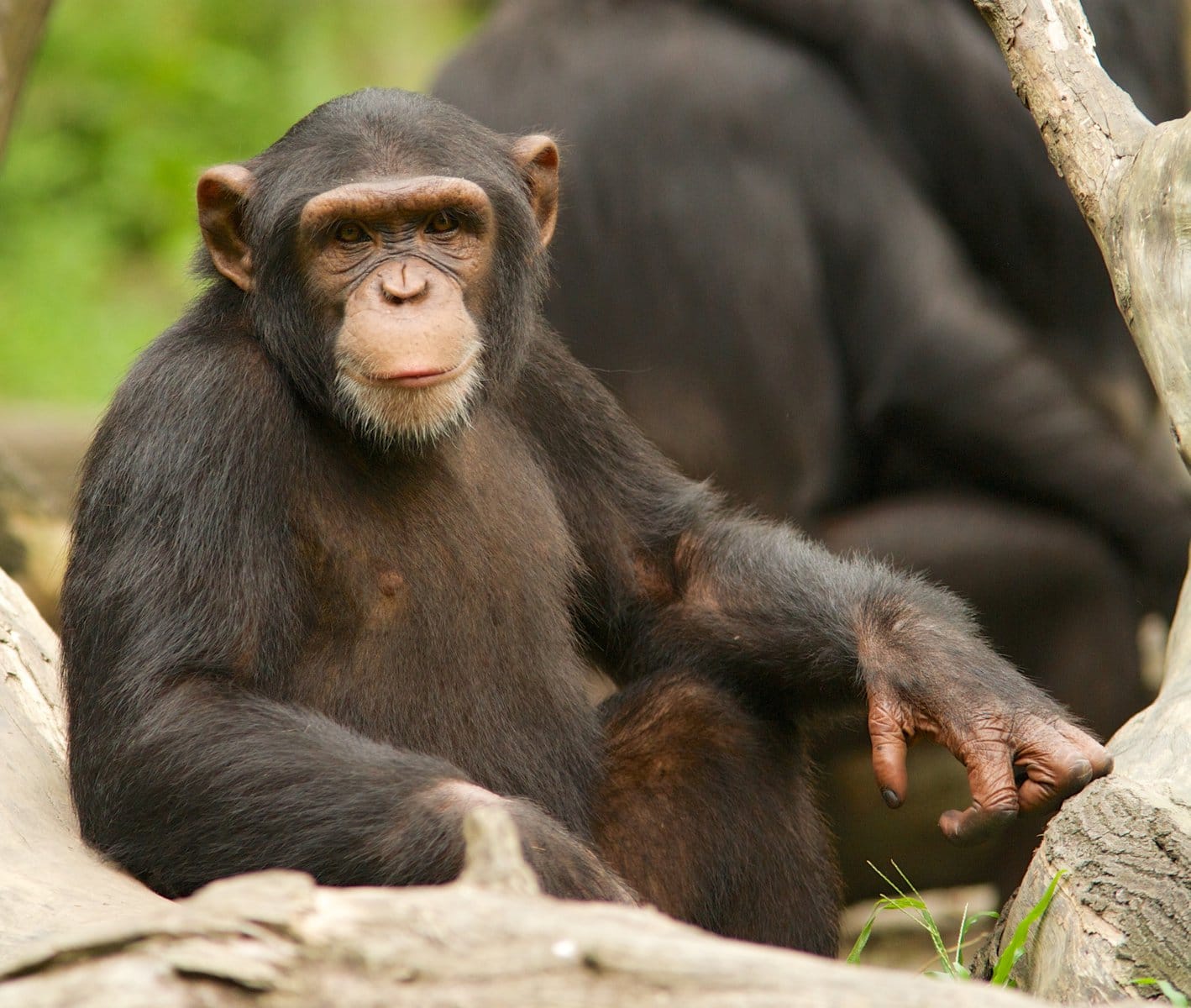In highly social species such as chimpanzees, understanding who’s in charge, who has influence, who’s in, who’s out, and shifting alliances between others, often make big differences when it comes to finding a mate, dependable, trustworthy friends, securing food – and ensuring your status and safety within a troop.
As Frans De Waal humorously put in his first best-selling 1982 book, “Chimpanzee Politics,” the behaviour of members of the House of Representatives in the United States, then led by Newt Gingrich, when they tried to impeach Bill Clinton, differed little from that of the chimpanzees whose behaviour De Waal had studied for many years.
Robin Dunbar, an Oxford evolutionary psychologist, posits that social complexity, more than tool-making, drove the evolution of the brain’s neocortex in apes such as chimpanzees, our hominin ancestors, archaic humans such as neanderthals and, most recently, modern humans.
Dunbar correlated group size with brain and neocortical size and showed that, for example, chimpanzee troops are typically comprised of 30 to 50 members, bands of neanderthals numbered on average 120 and for modern human hunter-gatherers, the average number is 150, although overnight groups are often smaller at 30 to 50 members.
Within those groups, members were recognized as fitting in, and their social status granted them a place and therefore a share of the resources and protection.
But outside the chimp band, outsiders were often greeted with wariness, suspicion, even hostility – and sometimes warning vocalizations and gestures, which if ignored, might prompt an attack.
So also with humans. Strangers, especially those who look, dress or behave differently compared to prevailing norms, all too often prompt threatening gestures and language and even murder in the case of African Americans, Asians or others perceived as threats to accepted order.
Skin colour and some cultural dress norms make easy targets, especially when law enforcement and the courts support deeply prejudiced world views.
Antisemitism in Europe had been a common feature of societies from Russia to western Europe for centuries and it didn’t take much stirring by Hitler to stoke the fires of prejudice toward not only Jews, but Slavic peoples, as conniving sub-humans and fair targets for murder on a planned industrial scale.
As a species, humans have much to answer for.
One look at the record of colonialism in the Americas, Africa and Asia should remind us that for many centuries, humans not only colonized many peoples but enslaved some, especially Africans.
It’s a record that has left a legacy of distrust and continuing racial prejudice. It all was done, in the case of western European countries, with the support of governments and often the church of the day, which, as recently as the 19th century, tolerated slavery and for much of the time supported colonialism.
The same governments and churches often sent children of Aboriginal peoples to residential schools where physical, sexual and mental abuse were common.
Equivalent intolerance is tolerated to this day in other lands in countries such as Afghanistan and some parts of the Middle East where religious and cultural differences fuel animosity – and worse.
The above and the firebombing of Dresden and Japanese cities, to say nothing of dropping of two atom bombs, notorious prison camps, the systematic murder of millions of Jews, Russians, and dissidents, illustrate how nasty humans can be.
I could go on – but the point is made.
Humans may be the cleverest species, but by far we are the nastiest. Our cleverness makes that nastiness much worse because our weapons no longer are axes, spears and arrows but bunker-busting bombs and lots of them.
The ongoing war in Ukraine reminds us that some members of the human family see nothing wrong with flattening cities, targeting schools, hospitals and residential neighbourhoods, and repeatedly threatening far worse – such as gas or nuclear weapons.
It’s not a record to be proud of whether it’s war we’re talking about or failing to meet minimum climate goals – which if exceeded will bring far worse weather, crop losses and starvation on a record scale before this century is out.
This time around, we can’t say we weren’t warned.
Dr. William Brown is a professor of neurology at McMaster University and co-founder of the InfoHealth series at the Niagara-on-the-Lake Public Library.







